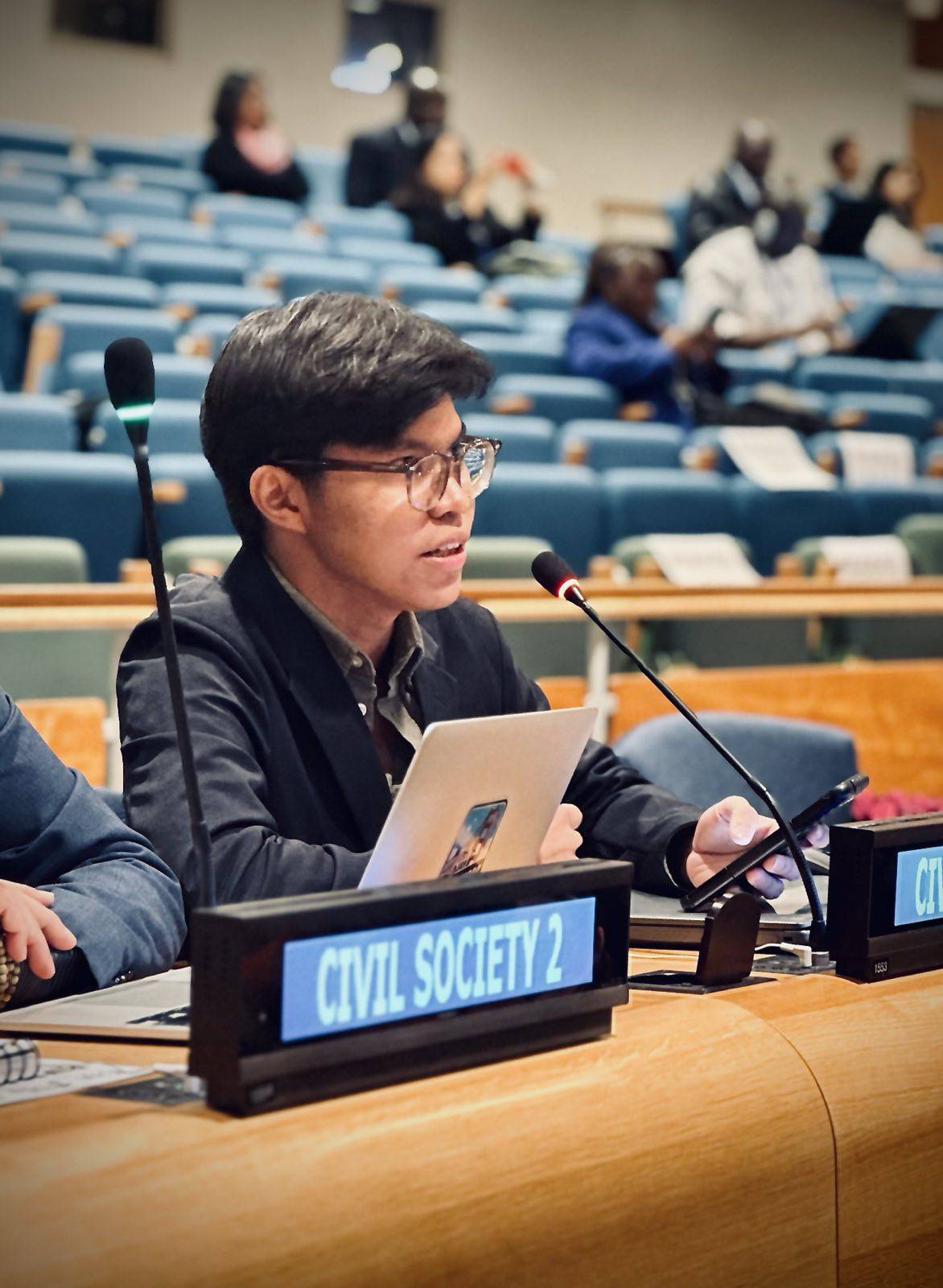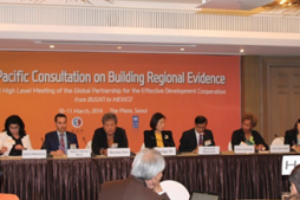IBON International Policy Head, Rodolfo Lahoy, delivered the following intervention at the official session on Private Business and Finance at the 2024 UN Financing for Development Forum. The following text has been edited for clarity and context.
We have mentioned the opportunity of a “new narrative” on the role of the private sector. Nine years since the 2015 Addis Ababa Action Agenda, we welcome this as an opportunity to shed the old and really welcome the new. Today, the faith in private finance and the relegation of states’ roles to de-risking for investors has been disconnected from two realities.
First, the failure of private finance to deliver on potentials ascribed to them. The World Bank’s push to use billions of public money to mobilise trillions in private finance (“Billions to Trillions”) has failed;[1] blended finance mainly mobilised in countries where profit margins are higher.[2] Voluntary ESG reporting has been rife with greenwashing.[3] In this session, we heard that “we cannot do it [financing for development] alone,” but why do we need to rely on actors whose developmental contributions are unclear? The public sector still accounts for 87 to 91 per cent of infrastructure investment spending in developing countries.[4] We have also heard in this session that the push for private finance to align with the sustainable development goals are driven by investor preferences – so we are putting faith in actors not really concerned about us but with their interests?
Second, these same private finance actors have shaped our crises – from the effects from capital flight, of at least USD 32 billion,[5] in the global South; of banks continued financing of extractive fossil fuel companies;[6] and rising corporate profits amid inflation.
We need to learn the lesson that the regulatory role of the state and democratic planning should be primary, instead of the preoccupation with attracting investors in the name of partnerships. We need new rules that reflect and learn from policy mistakes. Instead of creating more financial markets in the global South, we call for an intergovernmental negotiation on a global convention to regulate the asset management industry. We support the call to promote industrial policies as essential parts of democratically-determined Southern development strategies.
We need to make the international financial architecture fit for the purpose of peoples’ rights, including the right to development and self-determination. Our architecture is structured to drive outflows from the global South. The oligopolistic firms and Northern states driving the climate crisis are the same ones benefiting from the extractive economic structure. The Fourth Financing for Development Conference, or FfD4, must democratise economic governance. We could do away with the misplaced faith in private finance, to welcome real structural changes. Instead of just bringing in the “furniture” of SDG bonds, public-private partnerships (PPPs), let us renovate our “house,” re-do the architecture. Structural change is the real innovation. #
[1] Kenny, Charles. 2022. “Billions to Trillions is (Still) Dead. What Next?” Center for Global Development. https://www.cgdev.org/blog/billions-trillions-still-dead-what-next
[2] OECD. 2023. “Private Finance Mobilised by Official Development Finance Interventions.” https://www.oecd.org/dac/2023-private-finance-odfi.pdf
[3] Laker, Benjamin. 2023. “Greenwashing Unmasked: A Critical Examination Of ESG Ratings And Actual Environmental Footprint.” Forbes.com. https://www.forbes.com/sites/benjaminlaker/2023/08/04/navigating-the-mirage-unraveling-the-disconnect-between-esg-ratings-and-real-environmental-impact/?sh=726e6d081f8b
[4] Fay, Marianne, et al. 2019. “Hitting the Trillion Mark — a Look at How Much Countries are Spending on Infrastructure.” World Bank Policy Research Working Paper No. 8730. https://papers.ssrn.com/sol3/papers.cfm?abstract_id=3327648
[5] UN Department of Economic and Social Affairs. 2022. “World Economic Situation and Prospects: October 2022 Briefing, No. 165.” https://www.un.org/development/desa/dpad/publication/world-economic-situation-and-prospects-october-2022-briefing-no-165/
[6] Banking on Climate Chaos: Fossil Fuel Finance Report. 2023. https://www.bankingonclimatechaos.org/



![[WEBINAR] Reclaim Our Lands, Forests, and Rivers: A CSO Review of Kenya’s Amended Climate Change Act](https://iboninternational.org/wp-content/uploads/2023/10/CLIMATE-JUSTICE-final-300x200.jpg)